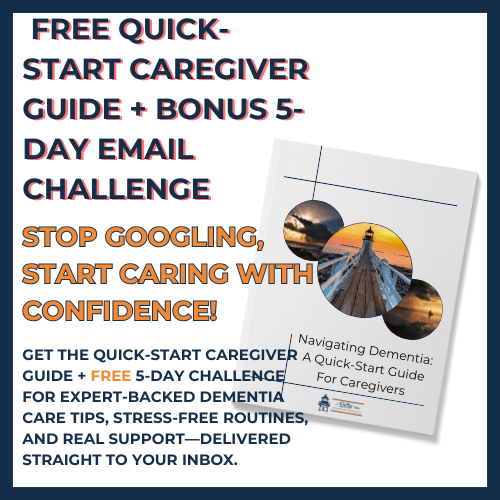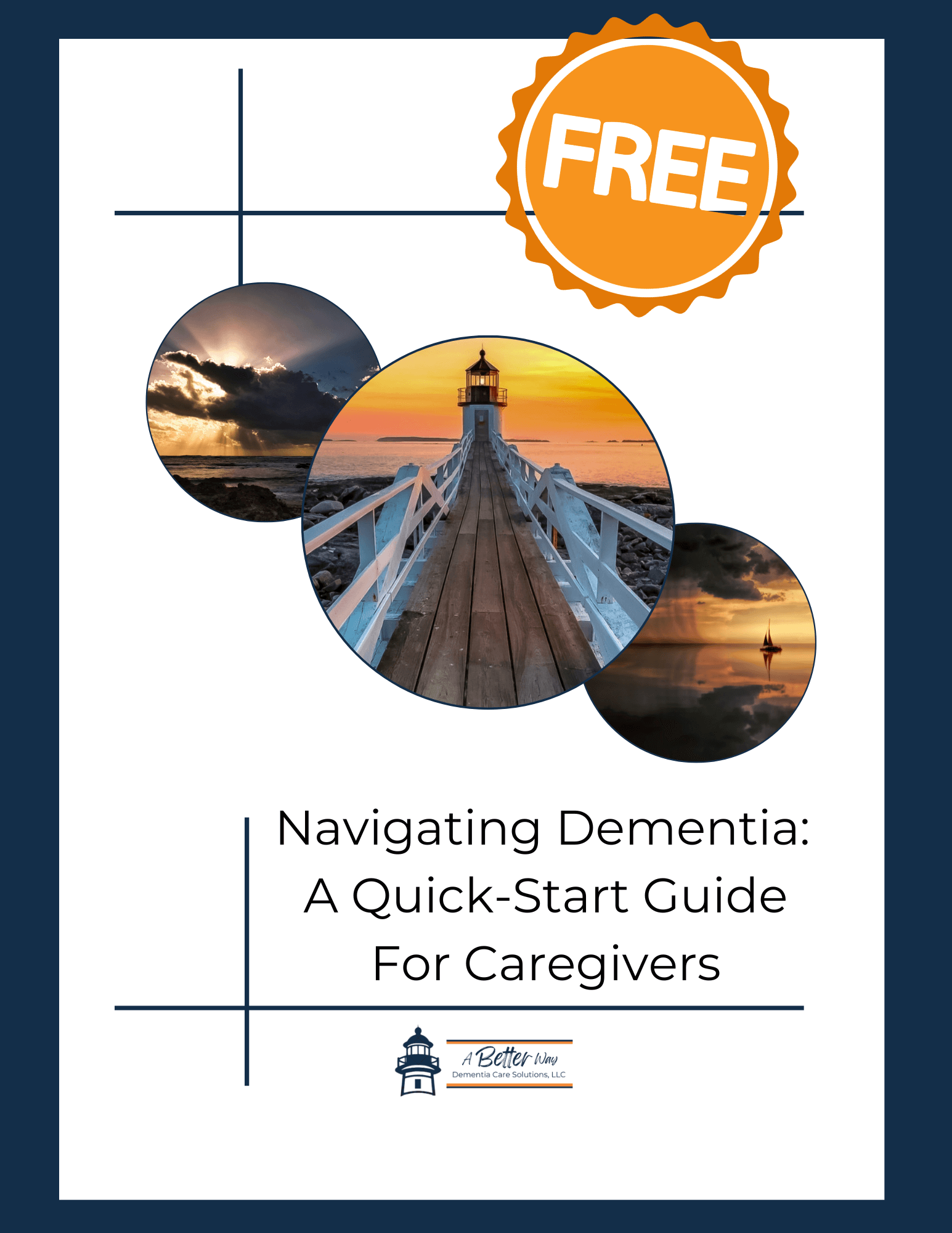
Dementia doesn’t happen overnight—it develops gradually, often beginning with small changes that may be mistaken for normal aging. As a caregiver, recognizing the early signs can make a significant difference. Early detection allows for better planning, access to treatment, and adjustments that improve quality of life.
While occasional forgetfulness is normal, persistent changes in memory, thinking, or behavior could indicate something more. Here’s what to look for.
10 Early Signs of Dementia
1. Memory Loss That Affects Daily Life
It’s normal to forget a name or appointment occasionally, but with dementia, forgetfulness becomes more frequent and disrupts daily life. A person may:
Ask the same questions repeatedly
Forget important dates or events
Rely heavily on memory aids (sticky notes, reminders)
2. Difficulty Finding the Right Words
A person may struggle to follow conversations, forget common words, or call things by the wrong name (e.g., calling a "watch" a "hand clock").
3. Trouble with Planning and Problem-Solving
Tasks that require multiple steps—such as following a recipe, managing bills, or planning an event—become challenging.
4. Confusion with Time or Place
A person may lose track of dates, forget where they are, or get confused about the time of day. They may also struggle with remembering how they got somewhere.
5. Misplacing Items and Losing the Ability to Retrace Steps
Everyone misplaces things occasionally, but with dementia, a person may put items in unusual places (e.g., keys in the fridge) and be unable to find them later.
6. Poor Judgment or Decision-Making
This might include giving away large sums of money, falling for scams, neglecting personal hygiene, or making inappropriate choices in social settings.
7. Withdrawal from Social Activities
A person may lose interest in hobbies, avoid social events, or seem disconnected in conversations.
8. Mood and Personality Changes
Dementia can cause shifts in mood, including increased anxiety, depression, irritability, or suspicion. A once-outgoing person may become withdrawn.
9. Trouble with Familiar Tasks
Things that were once second nature—like using a microwave, driving a familiar route, or making coffee—become difficult.
10. Changes in Vision and Spatial Awareness
A person may have trouble judging distances, reading, or recognizing faces, which can make driving dangerous.
What to Do If You Notice Early Signs of Dementia
If you start noticing changes in memory, thinking, or behavior in the person you care for, it’s important to take action early. While dementia may be a possibility, other medical conditions—such as vitamin deficiencies, thyroid imbalances, depression, or medication side effects—can cause similar symptoms. Here’s what you can do:
1. Schedule a Doctor’s Visit
Why it matters: Early evaluation is crucial because some dementia-like symptoms can be reversible if treated promptly. Conditions like B12 deficiency, infections, or medication interactions can cause confusion and memory problems.
What to expect at the appointment:
- A cognitive assessment (tests for memory, problem-solving, and language)
- Bloodwork to rule out vitamin deficiencies, thyroid disorders, or infections
- A medication review to check for side effects
- Brain imaging (MRI or CT scan) in some cases to look for structural changes
👉 Tip: Prepare a list of observed symptoms, including when they started and how they have changed over time. Click here to download our FREE guide for planning for a visit to the doctor.
2. Start a Symptom Journal
Why it matters: Keeping a detailed record of behaviors, memory lapses, or personality shifts will help doctors make an accurate diagnosis and track changes over time.
What to document:
✔ Specific symptoms (e.g., repeating questions, forgetting familiar names)
✔ When they occur (morning, evening, after meals, during stress)
✔ Changes in mood, sleep patterns, or daily routines
✔ Any safety concerns (wandering, leaving the stove on, missing appointments)
✔ Specific symptoms (e.g., repeating questions, forgetting familiar names)
✔ When they occur (morning, evening, after meals, during stress)
✔ Changes in mood, sleep patterns, or daily routines
✔ Any safety concerns (wandering, leaving the stove on, missing appointments)
👉 Tip: If possible, use video or written notes to capture examples of concerning behavior.
3. Have an Open and Supportive Conversation
Why it matters: If the person you care for is aware of their changes, they may feel scared, frustrated, or embarrassed. How you approach the conversation can make a big difference.
How to start the discussion:
- Choose a calm, private setting where they feel comfortable.
- Express concern in a gentle, non-judgmental way (“I’ve noticed you’ve been forgetting things more often—have you noticed it too?”).
- Offer reassurance that you are there to support them, not to take away their independence.
- If they resist or deny changes, don’t force the conversation—bring it up again later.
👉 Tip: Use real-life examples to guide the discussion, such as “I noticed you missed your doctor’s appointment last week—do you remember scheduling it?”
4. Begin Planning for the Future
Why it matters: Even if symptoms are mild, early planning allows the person you care for to make key decisions while they still can. Waiting too long can make legal, financial, and care-related choices more difficult.
Steps to take:
✔ Discuss legal documents like power of attorney (POA), advance directives, and wills with an attorney. Check out this blog post
✔ Review financial plans (insurance, long-term care coverage, Medicaid/Medicare options). check out this blog post
✔ Start exploring care preferences—would they prefer home care, assisted living, or memory care if symptoms worsen?
✔ Make small safety modifications in the home, such as installing grab bars, adding automatic stove shut-off devices, and using medication reminders. check out this blog postcheck out this blog post
✔ Discuss legal documents like power of attorney (POA), advance directives, and wills with an attorney. Check out this blog post
✔ Review financial plans (insurance, long-term care coverage, Medicaid/Medicare options). check out this blog post
✔ Start exploring care preferences—would they prefer home care, assisted living, or memory care if symptoms worsen?
✔ Make small safety modifications in the home, such as installing grab bars, adding automatic stove shut-off devices, and using medication reminders. check out this blog postcheck out this blog post
👉 Tip: Involve a trusted family member, attorney, or financial advisor in these discussions to ensure nothing is overlooked.
Final Thoughts
Noticing early signs of dementia can be overwhelming, but taking action now can make a big difference in getting the right support and care. Early diagnosis can help with symptom management, allow for better planning, and provide access to helpful resources.
Next Steps
If you need personalized guidance on creating a care plan, consider our 1:1 caregiver coaching services. Let’s navigate this journey together. Schedule a consultation today!
Join Our Private Caregiver Community
If you're looking for a safe space to share your caregiving experiences, ask questions, or simply connect with others who understand the challenges you face, join our private Facebook support group for caregivers. It's a supportive, empathetic community where you can find encouragement and answers when you need them most. Click here to join.
Subscribe to Our Newsletter & Download Your Free E-Book
For more valuable tips, resources, and updates on dementia care, click here to subscribe to our newsletter today!
Download Our FREE E-Book. CLICK HERE

Disclaimer
The information contained in this blog post is for general educational and informational purposes only and should not be construed as legal advice, financial advice, health advice, or medical advice. The information provided is not a substitute for advice from a qualified professional who is aware of the facts and circumstances of your individual situation. We expressly recommend that you seek advice from a professional familiar with your specific situation.
Want to keep figuring this out together?
Subscribe to Finding Our Way in Dementia Care and get honest stories, helpful tips, and gentle support delivered to your inbox every week. Just real talk, grounded care, and space to breathe.
Subscribe to Finding Our Way in Dementia Care and get honest stories, helpful tips, and gentle support delivered to your inbox every week. Just real talk, grounded care, and space to breathe.
Kind truth. Clear steps. Warm guide.
















0 Comments